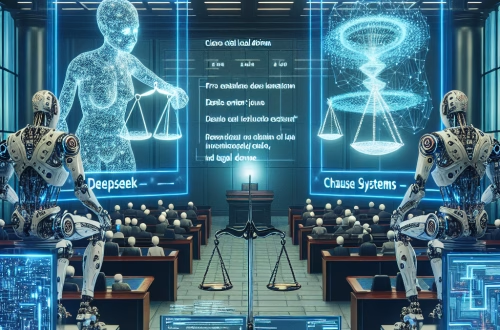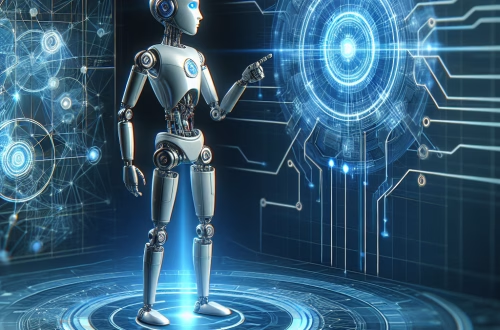Claude AI Safety and Research Company Mission
Summary:
Claude AI is an advanced artificial intelligence model developed by Anthropic, a research company focused on AI safety and alignment. The company’s mission centers on ensuring AI systems are helpful, honest, and harmless—often referred to as the “HHH” principles—through rigorous research and development. Claude AI’s design prioritizes ethical considerations, transparency, and user trust, aiming to mitigate risks associated with large language models. This initiative matters because it addresses concerns about AI misuse, misinformation, and unintended consequences. For novices, understanding Claude AI’s mission helps demystify responsible AI development and usage.
What This Means for You:
- Transparency in AI Interactions: Claude AI’s commitment to honesty means you can expect more reliable and explainable outputs, reducing the risk of misinformation. Fact-checking is still advised, but the model is designed to prioritize accuracy.
- Actionable Advice for Safe Usage: When interacting with Claude AI, always verify critical information from authoritative sources. The model is trained to avoid harmful content, but users should remain cautious with sensitive topics.
- Increased Focus on Ethical AI: Claude AI’s safety-first approach encourages ethical considerations in tech adoption. Businesses and individuals alike should align their AI usage with these principles to foster long-term trust in AI applications.
- Future Outlook or Warning: While Claude AI sets a strong precedent for AI safety, rapid advancements mean regulatory frameworks must evolve. Users should stay informed about AI policies and engage in discussions about responsible AI development.
Explained: Claude AI Safety and Research Company Mission
Claude AI, developed by Anthropic, represents a significant leap in AI safety research. The company’s mission revolves around ensuring AI systems are aligned with human values—prioritizing safety, reliability, and ethical considerations. Unlike traditional AI models that focus solely on performance, Claude incorporates “Constitutional AI,” a framework that embeds ethical guidelines directly into its training process.
Best Use Cases for Claude AI
Claude AI excels in scenarios requiring high trust and low risk, such as customer support, content moderation, and educational assistance. Its safety-first design minimizes harmful outputs, making it ideal for applications where misinformation or bias could cause significant harm. Businesses leveraging Claude benefit from transparent, explainable AI interactions, fostering greater user confidence.
Strengths of Claude AI
One of Claude AI’s core strengths is its commitment to the “HHH” (Helpful, Honest, Harmless) principles. It avoids generating harmful, misleading, or biased content by design, setting it apart from other models. Additionally, its Constitutional AI framework ensures outputs align with predefined ethical guidelines, reinforcing reliability.
Weaknesses and Limitations
Despite its advancements, Claude AI is not infallible. It may occasionally produce overly cautious responses, limiting creativity in certain contexts. Moreover, while it resists generating harmful content, no AI system is entirely immune to misuse. Users must remain aware of these constraints.
Practical Implications
Claude AI’s safety-first approach encourages industries to rethink AI deployment, emphasizing ethical alignment over raw performance. Its limitations highlight the need for ongoing research into AI governance and user education, ensuring responsible adoption.
People Also Ask About:
- How does Claude AI ensure safety?
Claude AI uses Constitutional AI, an approach where ethical and safety guidelines are encoded directly into its training. It undergoes extensive reinforcement learning from human feedback (RLHF) to align responses with human values. - What industries benefit most from Claude AI?
Industries requiring high transparency—such as healthcare, legal, and education—benefit significantly, as Claude minimizes risks associated with misinformation while providing assistive intelligence. - Is Claude AI completely unbiased?
While Anthropic strives for impartiality, biases may still exist. The model is trained to reduce harmful assumptions, but vigilance is necessary when interpreting outputs. - Can Claude AI be used for creative writing?
Yes, but its cautious design may sometimes limit imaginative flexibility. Users seeking highly creative outputs might supplement with additional prompting techniques. - How does Claude AI differ from OpenAI’s GPT models?
Claude AI places greater emphasis on safety and alignment, whereas GPT models prioritize broad functionality. Both have strengths, but Claude is more prescriptive in ethical boundaries.
Expert Opinion:
Experts emphasize that AI safety frameworks like Claude’s are crucial for preventing long-term risks in AI adoption. While current models may seem benign, unchecked AI development could amplify societal harms. Claude’s alignment techniques offer a replicable blueprint for ethical AI, though interdisciplinary oversight remains essential.
Extra Information:
- Anthropic’s Website – Provides detailed insights into Claude AI’s Constitutional AI framework.
- Constitutional AI Paper – A deep dive into the research methodology behind Claude’s ethical alignment.
Related Key Terms:
- Claude AI ethical guidelines for businesses
- Anthropic AI safety research mission
- Constitutional AI explained
- Benefits of Claude AI for education
- Comparison between Claude AI and GPT-4 safety
- AI alignment techniques 2024
- Responsible AI usage best practices
Check out our AI Model Comparison Tool here: AI Model Comparison Tool
#Claude #Advancing #Safe #Ethical #Research #Trusted #Future
*Featured image provided by Dall-E 3





